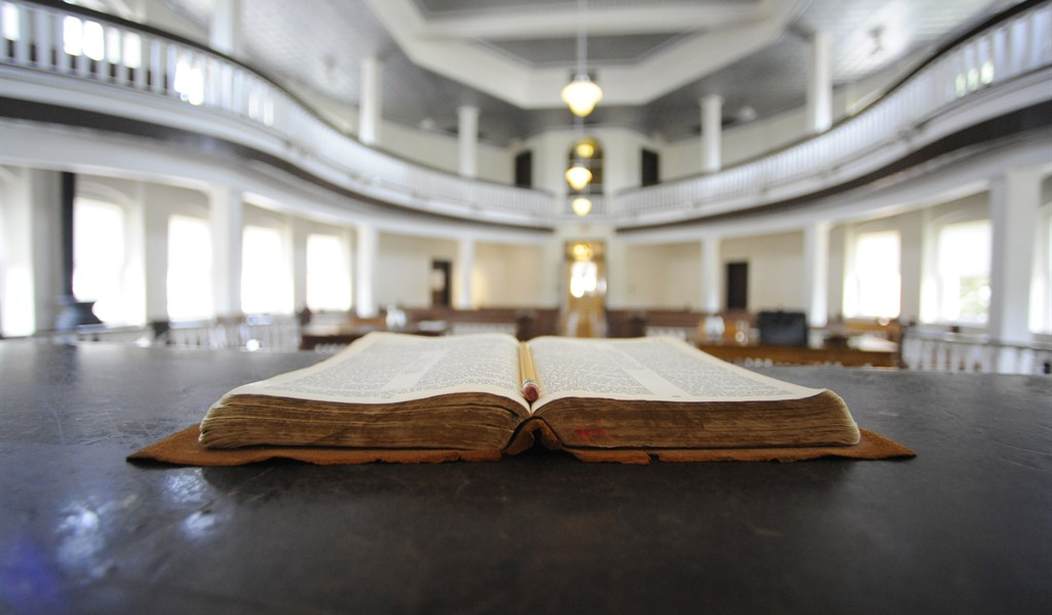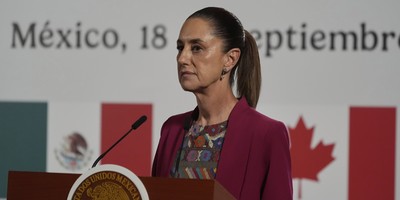Here’s a poll number about presidential politics that may shock you: About half of self-identified Christians of voting age did not cast a ballot in the election of 2012, according to the Barna Group. That’s 40 to 50 million men and women who probably say they love America but still failed to exercise the simplest and most basic form of citizenship.
Pundits and pollsters are predicting similar electoral apathy on Nov. 8 – perhaps in even greater numbers. Personally, I’ve never seen such apathy among Christians for the two major party presidential candidates.
Christians who stay on the sidelines usually fall for one of four myths, and as a result, have a smaller and smaller influence with each election cycle:
Myth #1: God doesn’t care about politics
Myth #2: It’s not my problem
Myth #3: Choosing between the lesser of two evils is evil
Myth #4: Politics doesn’t matter
We urgently need to shake ourselves out of believing these myths. Good people can’t sit this one out. We must never forget that punching that chad or pulling that lever or filling in that circle on Election Day is an indispensable part of our responsibility as Christians.
Myth #1: “God doesn’t care about politics.”
Saying “God doesn’t care about politics” is a kind of “get out of argument free” card when under withering assault from the secular elite. It is the equivalent of saying, “Yes, I am a Christian but the one true God doesn’t care about politics, so please don’t judge me by the political viewpoints of my fellow believers.” But here’s the rub: God cares about politics because He cares about everything.
Recommended
Washington, D.C., and your state capital are not black holes where no concern need be taken for God’s glory. As Pastor Adrian Rogers said, “It is inconceivable that God would ordain government and then ask His people to stay out of it.”
Myth #2: “It’s not my problem.”
Let’s say you walk in the breakroom at work and it’s a mess. You could magnanimously clean it up, or use the occasion to inspire others to an ethic of cleanliness. But most of us would be tempted to say, “I didn’t make this mess – let someone else deal with it.” It seems entirely fair and reasonable to respond this way.
In terms of community, though, the problems faced by some are ultimately going to be faced by all. Problems that aren’t solved while small become bigger ones we’ll have to face later.
In America, the people – not government employees – are in charge. It’s not enough merely to refrain from bad behavior. No one has ever received a good citizen award by virtue of disciplining himself to not rob convenience stores. Public virtue means choosing to do good, at personal expense, as an example to our fellows and for the sake of those who come after us. As Dietrich Bonhoeffer said, “Silence in the face of evil is itself evil: God will not hold us guiltless. Not to speak is to speak. Not to act is to act.”
Myth #3: “Choosing between the lesser of two evils is evil.”
Of all the objections Christians lodge against political involvement, this one sounds the most noble: “I refuse to traffic in evil, and politics is evil; therefore my passivity is virtuous.” You’ve probably heard it even more this election cycle as people bemoan candidates who seem to take every opportunity to display how distasteful they can be.
It’s true, of course, that politics is evil. We live in a fallen world and Christians are fallen, too. We’re not the pure few who bear the weight of evil perpetrated by others. Proclaiming that a person running for office is the “lesser of two evils” is to deny at some level the truth about our own state before God. As theologian RC Sproul often says, all of us are really a lot more like Adolf Hitler than we are like Jesus Christ.
If we let our discouragement become cynicism, then cynicism becomes apathy, apathy becomes indifference and indifference enables evil to win the day.
Myth #4: “Politics doesn’t matter.”
Virtue has a public component, not just a private one. Unwise political policies have destroyed the lives of tens of millions of people. Wise policies have brought freedom to tens of millions.
Properly conceived, politics offers a platform from which to encourage virtue, and virtue is at the heart of good government. The big things America is proud of – the freeing of oppressed peoples around the world, the welcoming of the “poor, huddled masses yearning to be free,” the right of people to live their lives and carry out their business without the threat of unlawful search and seizure – all of these are political products that came about only when good people got involved in politics.
It’s safe to say that there is not a single act you take in any given day that is not either facilitated or hampered by political decision-making at some level. Most of us have never really thought about it, and that, quite frankly, is part of the problem.
Don’t skip voting. Don’t let your lack of enthusiasm for certain candidates keep you from going to the polls and supporting good people and good measures and voting against bad people and bad measures.
Remember, to not act is to act. If things get worse, and we’ve not exercised our simplest, most basic responsibility as citizens, we have no one to blame but ourselves.
























Join the conversation as a VIP Member